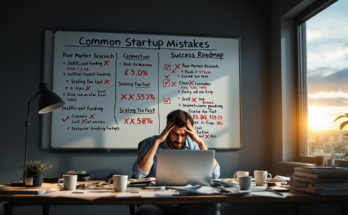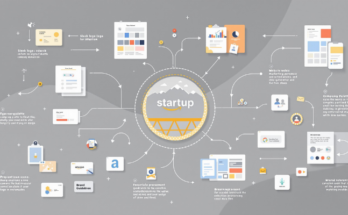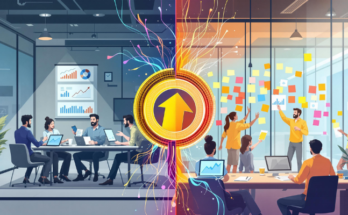To write this section, I have used primary research to establish that innovation will always be the main driver of change in the tech industry. In fact, it is over the last few years and more so today that startup firms have proven themselves to be critical shapers of the future by breaking the realms of human and business fundamentals. Despite the fact that startup do not possess long business experience and do not fully comprehend what is going on in the market, they are also able to greatly contribute to the development of new technologies, business models, and market opportunities by rapidly adjusting to the existing conditions.
In today’s lesson, we are going to look at the many technological trends that have received attention as a result of the startups and how they have shaped the future of innovation.
1. Artificial Intelligence (AI) and Machine learning (ML)
Over the last few years artificial intelligence (AI) and machine learning (ML) have certainly been the talks of the town. AI and ML have largely received support from startups as they have created capable approaches for delivering different and new systems to address different industry needs.
Application of artificial intelligence is common across such fields as finance, healthcare, transportation, and marketing. There are some of the today’s startups: IBM Watson, Nvidia, or Google DeepMind developed innovative and promising AI, ML algorithms so that machines acquire knowledge and make smart decisions and forecasts.
There is no more significant and vital area where AI and ML are going bearing the impactful change more than the healthcare industry. Real businesses such as Enlitic, Babylon Health and Alice are transforming the health system so that the doctors have powerful tools to diagnose diseases and create personalized patient care plans, and improve the quality of care offered to patients. The use of AI and ML has enabled doctors to get away from the work of repetition and provides doctors where they are needed whenever the patient needs.
Another large area of the application of AI and ML is in the transport sector. As we look to the future of semi-automated and fully autonomous vehicles, Cruise, Waymo and Tesla, among other emerging players are currently investing in enhanced physical sensor technology, data analytics and real-time decision-making systems that will allow the car to sense its environment, avoid obstacles and make optimal decisions on where to go and how to get there safely. These innovations are bringing us to safer, more efficient and more convenient transportation in the future.
2. Internet of Things (IoT)
Internet of Things (IoT) is another technology trend that has received significant advances due to the actions of startups. IoT refers to the networking of physical objects through using sensors, software and connectivity to capture and share information. There has been so much work put in by many stakeholders such as Google Nest, Philips Hue, and Netatmo et al that these smart home devices and systems utilizing the IoT technology was developed to entirely improve smart home technologies.
Venture capitalists are also getting involved in backing some of the industrial IoT startups that are providing organizations with the tools that allow them to manage and monitor their machines, sensors, and other assets on the Internet. IoT applications in industrial include prediction of asset and supply chain, inclusive of production planning and control.
3. Blockchain Technology
Today’s blockchain is one of the most discussed technologies in connection with modern tech advancements. Said to be the backbone of cryptocurrencies, blockchain technology can disrupt almost every industry and sector by allowing for the secure, transparent and decentralised exchange of data and value.
Coinbase, Blockchain information technology, Ripple and others are some of the companies that have pioneered the call for blockchain through embracing innovation which enables them to create new applications and solutions that are built around blockchain. From logistics and payments and up to healthcare and identification, young companies discover more potential areas of application for block chain that could determine the future of growth.
4. Augmented and Virtual Reality (AR/VR)
In 2016, the total number of global AR/VR devices shipped was 1.3 million, with a predicted 573 percent increase projected by 2020.
This technology began to develop rather rapidly over the recent years and startups have become an essential factor in its advancement and popularization. These technologies are allowing users to have interactive, virtual, and very engaging experiences using the real/virtual interface.
The use areas of VR and AR include games, entertainment, learning, and training. Companies such as Oculus, Magic Leap and Microsoft HoloLens have been driving the next generation of VR and AR retinal displays that provide high-quality content for the user across multiple scenarios.
Another administrative area, within which virtual and augmented reality has found its place is education and training. Chapters 6, & 7 mention many companies, including Strivr, Vircade, and DAQRI, are creating VR and AR applications that allow students and professionals to learn, visualize and practice in the real world. Implementing these technologies is pointing toward a new way of receiving an education or training that is more interesting, efficient and open.
5. Cybersecurity
With today’s world getting technologically advanced, cybersecurity follows as a very important technology trend that startups are already intervening. As cyber threats become increasingly common, ranging from data breaches, hacking attacks, and skillful identity threats to our computerized assets, there is a great need for new technologies to safeguard and secure our data.
Today again, such companies as CrowdStrike, Tanium, Cyberint are expanding the frontiers of generations of cybersecurity tools by artificial intelligence, machine learning and other types of big data analysis for real time threat detection, prevention or mitigation. Throughout endpoint security, threat intelligence, identity, and access management, startups are searching for new methods for enhancing cybersecurity and preserving our valuable data.
Conclusion
Finally, the analysis demonstrated that startups will have a significant impact on the future of various innovations in general, ranging from AI and ML, IoT, blockchain, VR/AR, to cybersecurity. Accomplishing organizations and industries goals startups are deploying their flexibility, innovativeness, and risk-taking nature to help different business sectors to be successful in the modern worldwide complicated and continually changing environment. Looking at the future it would be interesting to observe how startups keep on advancing on the matter of innovation and impact the further development of technology.




